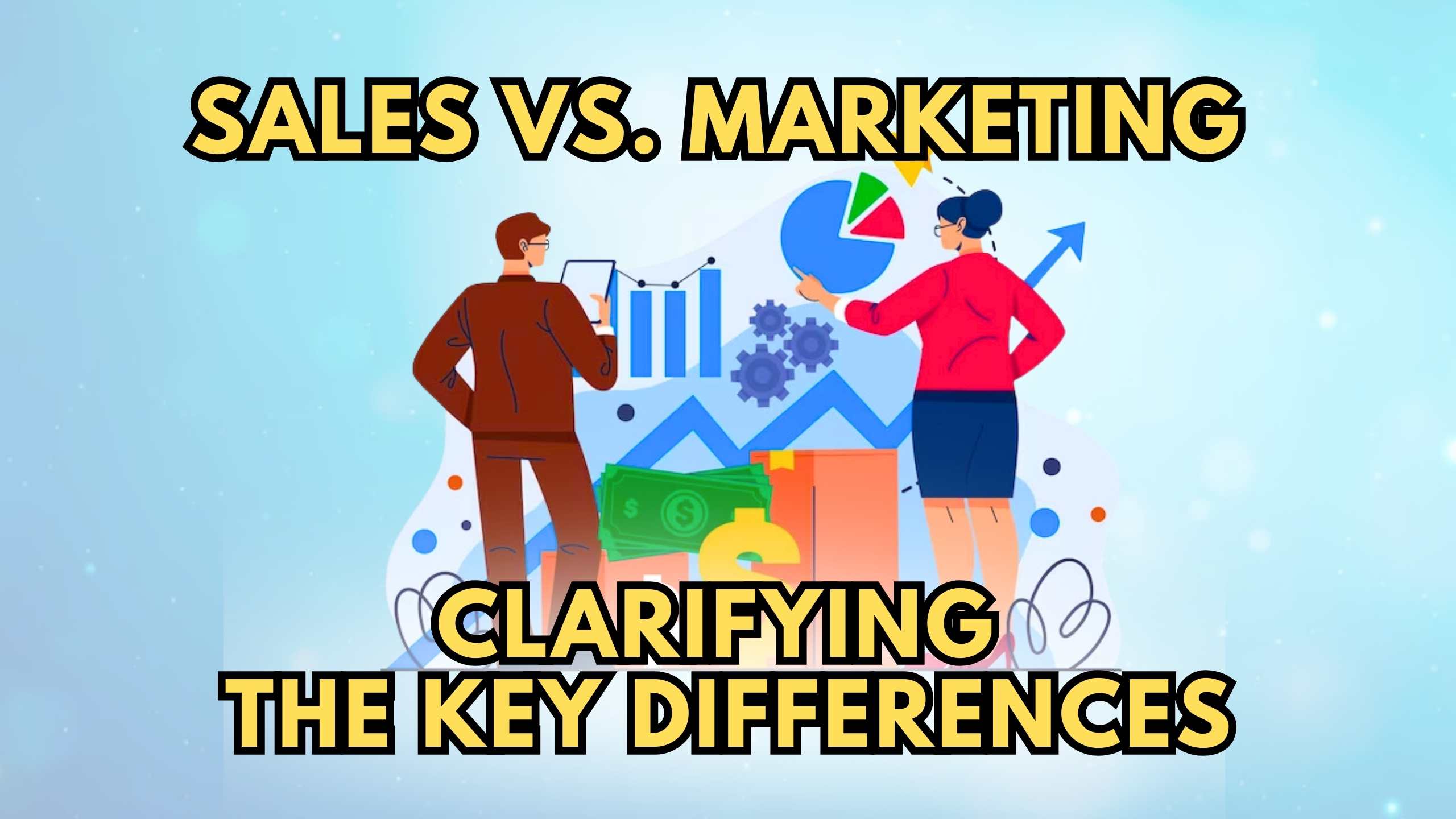Sales vs. Marketing: Clarifying the Key Differences
- Expense Management Software Credit Cards Investing Business Solutions


Sales vs. Marketing: Clarifying the Key Differences
Navigating the intricate relationship between sales and marketing is crucial for any business aiming for sustained growth. This blog post aims to provide a comprehensive understanding of the key differences between sales and marketing, shedding light on their distinct roles in the business ecosystem.
Defining Sales and Marketing
1. Sales: The Art of Closing Deals
Sales is the frontline of revenue generation. It involves personalized interactions with potential clients, understanding their needs, and guiding them through the buying process. The focus is on converting leads into customers through effective communication and relationship-building.
2. Marketing: Creating Awareness and Interest
Marketing, on the other hand, is about creating awareness and generating interest in the product or service. It encompasses strategic activities such as advertising, content creation, and brand promotion. The goal is to attract and nurture leads, ultimately passing them to the sales team.
Understanding the Overlapping Elements
1. Lead Generation: Marketing’s Contribution to Sales
While sales actively converts leads into customers, marketing plays a pivotal role in lead generation. Through targeted campaigns, content creation, and advertising, marketing generates interest and directs potential customers to the sales funnel.
2. Communication and Alignment: Ensuring Collaboration
Effective communication and alignment between sales and marketing teams are essential. When both departments work collaboratively, there is a seamless transition from lead generation to conversion. Regular meetings and shared goals enhance this synergy.
SaaS Solutions Facilitating Sales and Marketing Harmony
- HubSpot: HubSpot offers an integrated platform for both sales and marketing teams. With tools for CRM, lead nurturing, and analytics, it facilitates collaboration and ensures a unified approach towards customer acquisition.
- Marketo: Marketo is a comprehensive marketing automation platform. It enables marketers to engage leads throughout the entire customer journey and seamlessly integrates with CRM systems, ensuring a smooth handover to the sales team.
- Salesforce Sales Cloud: Salesforce Sales Cloud is a robust CRM platform that empowers sales teams. It allows for efficient lead management, pipeline tracking, and collaboration, ensuring that the sales process is streamlined and effective.
- Pardot: Pardot, a Salesforce product, focuses on B2B marketing automation. It assists in lead generation, nurturing, and scoring, providing marketing teams with the tools they need to contribute to the sales pipeline effectively.
- Zoho CRM: Zoho CRM is a user-friendly platform that integrates sales automation with marketing automation. It streamlines processes, enhances lead tracking, and fosters collaboration between sales and marketing teams.
Conclusion
In summary, while sales and marketing have distinct roles, their collaboration is integral for a thriving business. Understanding the differences and ensuring alignment between these two departments creates a harmonious approach to customer acquisition and revenue generation.
Harmonize Your Sales and Marketing Efforts with Subscribed.fyi
Ready to optimize your sales and marketing strategies? Subscribed.fyi provides a centralized platform for freelancers and small teams to understand, compare, and manage their SaaS stack seamlessly. Sign up today to unlock exclusive deals and savings, empowering you to align your tools with your business goals.
Unlock Your Savings with Subscribed.fyi Deals
Relevant Links:








